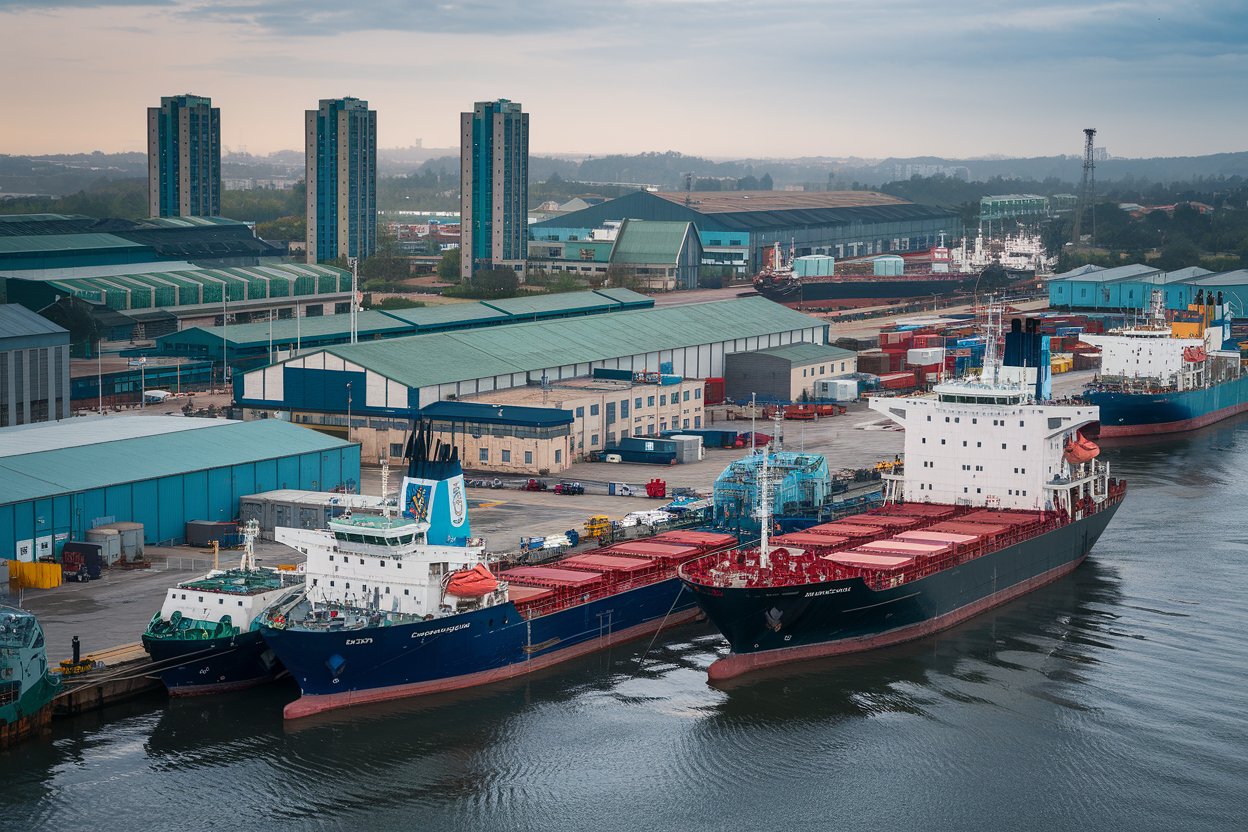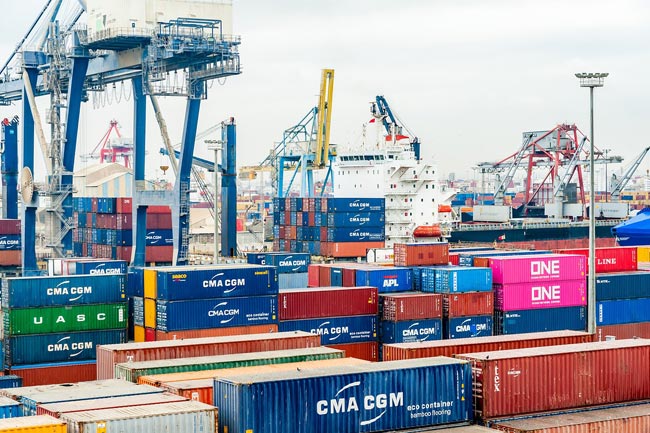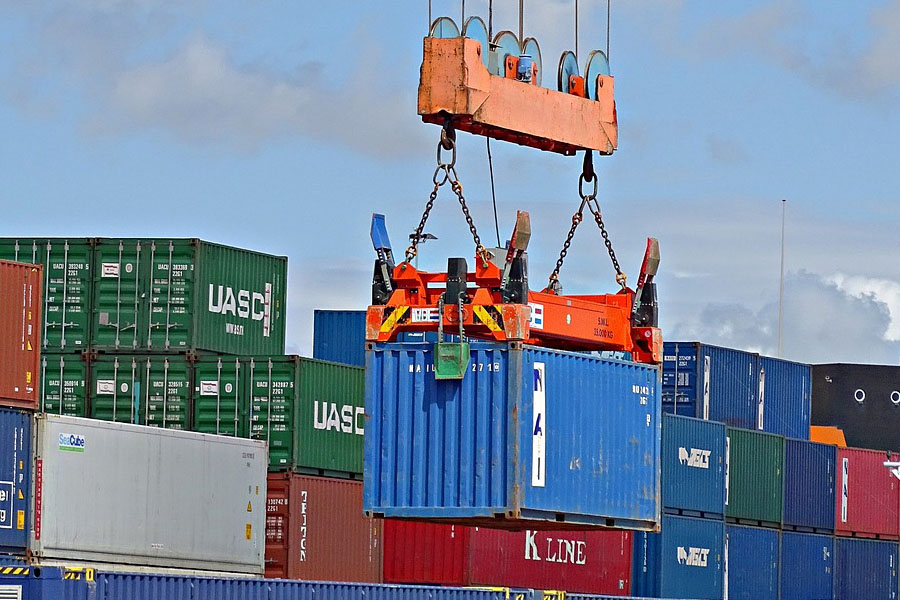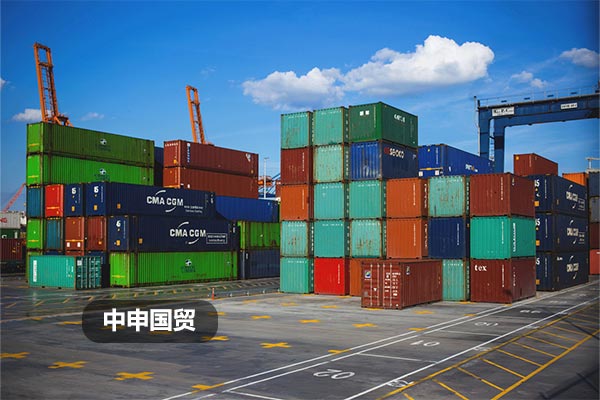- Shanghai Zhongshen International Trade Co., Ltd. - Two decades of trade agency expertise.
- Service Hotline: 139 1787 2118

With the continuous growth of the global demand for clean energy, the battery export market is also becoming increasingly prosperous. As a battery export agent, it is crucial to understand the industry situation, master the operation process and precautions. This article will provide you with a comprehensive guide.
According to the data of market research institutions, the scale of the global battery export market has continued to expand in recent years. Among them, lithium - ion batteries dominate and are widely used in fields such as electric vehicles, smartphones, and tablets. In addition, with the development of renewable energy, the demand for energy - storage batteries is also increasing.
I. Industry Conditions
In the export market, China is one of the largest battery producers and exporters in the world. However, different countries and regions have different import requirements and standards for batteries, which brings certain challenges to battery export agents.
Find a suitable supplier
II. Operation Process
Finding Suitable Suppliers
Selecting a reliable battery supplier is the key to agency export. You can find suitable suppliers by participating in industry exhibitions, searching on online platforms, communicating with peers, etc. When choosing a supplier, the following factors need to be considered:
Example: An agency company cooperates with a well - known domestic battery manufacturer. This enterprise has rich production experience and advanced technology, and can provide high - quality battery products. At the same time, the price of this enterprise is competitive and can meet the cost requirements of the agency company.
Signing of contract
Signing a contract with the supplier is an important part of protecting the rights and interests of both parties. The contract should include the following basic information:
Example: The contract signed between the agency company and the supplier clearly stipulates that the supplier should provide battery products that meet international standards and guarantee that there are no problems with the product quality within one year after delivery. If there are quality problems, the supplier shall be responsible for free replacement or repair. At the same time, the contract also stipulates the payment method and delivery time of the agency company, as well as the specific agreements on liability for breach of contract between the two parties.
Handling export procedures
Agency battery export requires handling a series of export procedures, including customs declaration, commodity inspection, transportation, etc. The following is the specific process of handling export procedures:
Example: When handling export procedures, an agency company selected a professional customs declaration company and commodity inspection agency to ensure the smooth progress of customs declaration and commodity inspection. At the same time, the agency company also cooperated with a reliable transportation company, selected a suitable mode of transportation and packaging method to ensure the safe transportation of the goods.
Tracking the goods transportation
During the goods transportation process, it is necessary to track the transportation situation of the goods in a timely manner to ensure that the goods arrive at the destination on time. The following are the specific methods for tracking the goods transportation:
Example: During the goods transportation process, an agency company tracked the transportation situation of the goods in real - time through the website of the transportation company and kept in touch with the customer service of the transportation company to understand the transportation situation of the goods in a timely manner. At the same time, the agency company also paid attention to the customs clearance situation to ensure that the goods passed the customs inspection smoothly.
Handling after - sales problems
After the goods arrive at the destination, some after - sales problems may occur, such as product quality problems, transportation damage problems, etc. The following are the specific methods for handling after - sales problems:
Example: After the goods arrived at the destination, an agency company found that some of the goods had quality problems. The agency company immediately communicated with the supplier and asked the supplier to provide a solution. The supplier agreed to replace the goods free of charge and bear the transportation costs. At the same time, the agency company also communicated with the customer, explained the reasons for the quality problems of the goods to the customer, and provided the service of replacing the goods. The customer was satisfied with the handling method of the agency company.
III. Precautions
1. Understand the policies and regulations of the target market
Import requirements and standards for batteries vary in different countries and regions. The agency company needs to understand the policies and regulations of the target market to ensure that the exported batteries meet local requirements. For example, some countries and regions have strict requirements for the safety and environmental friendliness of batteries. The agency company needs to ensure that the exported batteries meet these requirements.
2. Pay attention to the packaging and labeling of batteries
The packaging and labeling of batteries are important links to ensure the safe transportation and use of batteries. The agency company needs to ensure that the packaging of batteries meets relevant standards and requirements, and the labeling is clear and accurate, including information such as the battery model, specifications, production date, and manufacturer.
3. Pay attention to the quality and safety of batteries
The quality and safety of batteries are the key to agency exports. The agency company needs to select reliable suppliers to ensure that the exported batteries meet relevant quality standards and safety requirements. At the same time, the agency company also needs to conduct quality inspections and safety assessments of the batteries to ensure their quality and safety.
4. Pay attention to tariff and tax issues
Tariff and tax policies for batteries vary in different countries and regions. The agency company needs to understand the tariff and tax policies of the target market to ensure that the exported batteries meet local requirements. At the same time, the agency company also needs to plan tariffs and taxes reasonably to reduce costs.
5. Build good customer relationships
Building good customer relationships is an important part of agency exports. The agency company needs to keep close contact with customers, understand their needs and opinions, solve their problems in a timely manner, and provide high - quality services to build good customer relationships.
IV. Key points of the contract
Basic Information of Both Parties to the Contract
The contract should clearly state the basic information such as the names, addresses, and contact information of the agency company and the supplier.
2. Product specifications and quantity
The contract should describe in detail information such as the battery model, specifications, quantity, and quality standards.
3. Price terms
The contract should include price terms such as unit price, total price, payment method, and delivery time.
4. Quality assurance
The contract should stipulate the suppliers liability and period for product quality assurance.
5. After - sales service
The contract should clarify the content and period of the after - sales service provided by the supplier.
6. Liability for breach of contract
The contract should specify the responsibilities that both parties should bear when they violate the contract terms.
7. Dispute resolution
The contract should stipulate the methods of dispute resolution, such as negotiation, arbitration, litigation, etc.
Other Clauses
The contract can also include other clauses, such as confidentiality clauses, intellectual property clauses, etc.
The above are the process, precautions, and key points of the contract for agency battery exports. I hope it will be helpful to you. During the process of agency battery exports, attention needs to be paid to the details of each link to ensure the smooth progress of exports. At the same time, it is also necessary to continuously learn and understand relevant policies and regulations to adapt to market changes and development.
Related Recommendations
? 2025. All Rights Reserved. Shanghai ICP No. 2023007705-2  PSB Record: Shanghai No.31011502009912
PSB Record: Shanghai No.31011502009912










